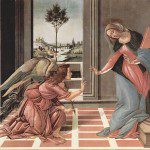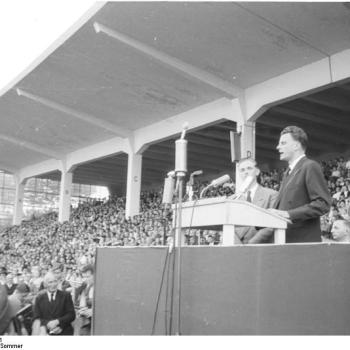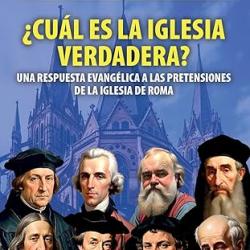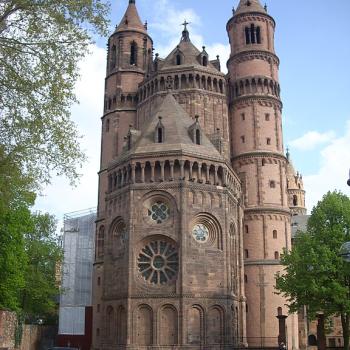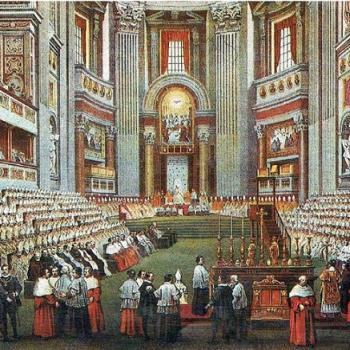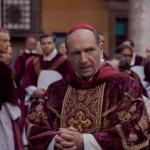vs. Dr. Peter Kwasniewski
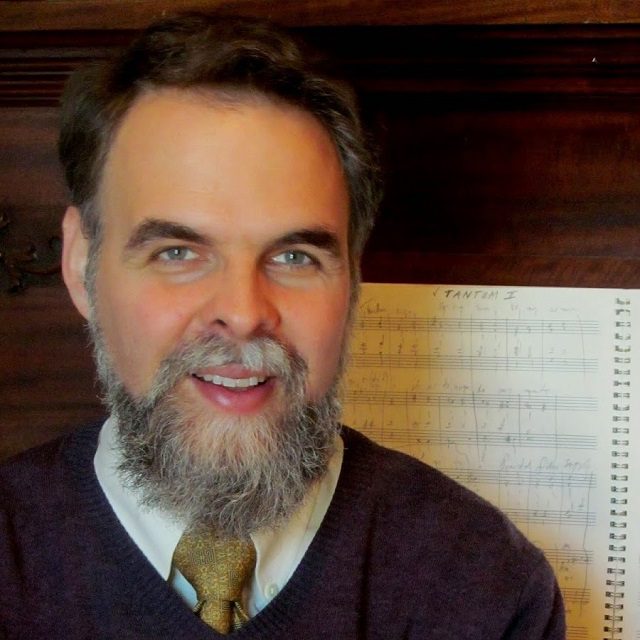
Peter Kwasniewski [You Tube image / Creative Commons license]
***
This is a combination of two related exchanges on my Facebook page with Dr. Peter Kwasniewski: Professor of Theology and Philosophy at Wyoming Catholic College, and contributor to the reactionary sites, One Vader Five and Rorate Caeli. I engaged in very lengthy dialogue with him regarding the reform of the liturgy, in February 2014 (see Part I / Part II). His words will be in blue.
*****
It would be better to read Bp. Athanasius Schneider’s excellent and moderate critique of AL [Amoris Laetitia] [link to the article]
Is he the new Cardinal Burke now: the darling of the radical Catholic reactionaries and legitimate mainstream traditionalists? You guys always latch onto a favorite bishop. Schneider appears to be that now, in light of Burke’s descent into decadent neo-Catholicism . . .
Oh, so it’s a problem when everyone rallies around a certain bishop who stands out from the crowd, like, say, St. Athanasius?
I guess that is your answer. Thank you. He’s the new Burke . . .
He’s just a faithful, orthodox, and courageous bishop, preaching the truth in season and out of season. That’s what makes him a rallying point.
So there is just one left? Or are there a few more still kicking around? Or is Hilary White correct, and no good ones are left at all?
I think it’s what one usually sees in the annals of Church history — a wide range of bishops, some outspoken, some orthodox but softspoken, some orthodox but cowardly, some heterodox but unwilling to come out with it, and some openly heterodox. And I happen to think we are in a situation very much like the Arian crisis, when, as you know, there were not exactly a lot of bishops standing up in defense of the truth.
I agree with your first sentence. I don’t agree with the second, as I don’t see many bishops openly asserting and teaching Christological heresy / denying the Holy Trinity: as we had during the Arian crisis.
Sorry, Dave, there are more ways to be heretical than just to contradict explicitly the provisions of the Niceno-Constantinopolitan creed. Would that things were that simple.
Yes there are. My disagreement with your analogy of today to the Arian crisis stands nonetheless. I don’t see anything remotely near what happened in the Arian crisis, with bishops outwardly denying that Jesus is the Son of God. To make such a direct comparison, is, I think, utterly unwarranted.
So… if the majority of Catholics do not believe in the Real Presence and are pro-contraception, this isn’t a major crisis? Wait… I can hear it coming… you will deny that these things are true. Or you’ll say they pale in comparison to denying the divinity of Christ. I’m not so sure they do. Everything is connected with everything else, and what has happened to Eucharistic doctrine and moral doctrine reflects a general crisis of faith in the very person and mission of Christ.
Who said there wasn’t a crisis? I believe with my mentor Fr. Hardon that it is the greatest crisis in the Church ever. We were talking specifically about the bishops. All I said was that they don’t seem to me to be as bad as in the times of the Arian crisis, where we had rank Christological heresy.
You switched the topic from the bishops to laypeople and their views on the Eucharist and contraception. We would mostly agree about that. So now we’re talking about two different things at the same time.
But I thought we didn’t have enough in common (as fellow orthodox Catholics) to talk at all? [see one of his comments below] Glad you are back . . .
Okay. My point would be that the crisis among the laity is causally connected to the abdication of spiritual authority and clear teaching among the bishops. And I would add that there is sad evidence that many bishops do not even hold the faith that you and I hold.
I agree that bishops and priests have failed in their duty to teach (and to teach reasons why we believe what we do: my field).
But the causes of ignorance, laxity, and immorality go far beyond just them, and also each individual has responsibility to get off their butts and learn the faith, with all the marvelous resources we now have in order to do so: more and easier to access than ever.
If folks remain spiritual babes (as St. Paul talks about) then they will simply nod at priests and bishops and be spoon-fed and bottle-fed rather than actually break open a theology book, just as they learn anything else in college or at work or the school of hard knocks.
You write articles, and I do, which teach people, and they can learn from them. You and I aren’t bishops. So there are ways to learn the faith besides priests and bishops, too.
*****
RESOURCES FOR CONFUSED OR TROUBLED FOLKS include Scriptures, Fathers, Doctors, and the clear, precise articulations of the Faith taught in modern papal encyclicals like Casti Connubii. [take-off of my collection: Pope Francis Defended: Resources for Confused or Troubled Folks]
Cute. Do folks ever get teachings of the Bible wrong, and get confused about that, Peter? If so, does this have any bearing on the trustworthiness and orthodoxy of Holy Scripture?
Of course not. I’m being tongue in cheek. The fact is, there is a lot of Pope Francis’s teaching that is much less clear than Scripture, which is ironic, given that his job is to clarify it when needed.
But you grant my point by conceding: if even Holy Scripture, inspired by God Himself is confusing to many people, why should we expect any less from mere human, non-inspired documents?
And why would any logical thinker hold that such confusion must be because of the document and not also possibly (among other things) shortcomings or biases of various sorts in the readers?
Wait a minute… so the church’s leaders are supposed to be confusing to their people? This is a bit absurd. Why were the earlier papal documents of, say, Leo XIII and Pius XI and Pius XII, so much clearer? Were they over simplifying matters, or were they just clearer thinkers and better at shepherding?
Moreover: any document that makes itself readily susceptible to the deviations of such men as Kasper is already shown to be imperfect in itself. Which, of course, does not exclude defects in the readers — I never said it did.
I think it is the usual traditionalist exaggerations to the point of absurdity. We’re to believe that no lay Catholics or even priests were ever confused by papal utterances prior to Vatican II? The “revolution” of modernism in the Church began, according to Fr. Hardon, around 1940.
We are to believe that everyone always understands every jot and tittle of, say, St. Thomas Aquinas? And his Summa Theologica was actually written for “beginners” in theology.
I deny that Amoris Laetitia is “confusing” at all, let alone scandalously so. It’s a nuanced, thoughtful, somewhat complex document, but not inherently confusing.
Pope Francis’ prose is certainly more understandable to the average person than Pope St. John Paul II’s highly complex philosophically influenced prose. Traditionalists and reactionaries were moaning and groaning about that, then shut up for eight years with Pope Benedict; now we’re back to the same old same old.
Again, Vatican II (like the Bible itself) was distorted by the liberals, even though it is perfectly orthodox. Or do you deny that, too? Or it is, but is relentlessly “ambiguous” etc.?
We don’t have enough in common to continue this conversation. If you don’t think Amoris Laetitia is a confusing and problematic document, then enjoy your vacation on Mars.
I thought it was just starting to get interesting and constructive, but if you must go, feel free . . . We have plenty in common, assuming you accept the inspiration of Scripture and the magisterial status of Vatican II, and like St. Thomas Aquinas, Pope St. John Paul II, etc. Plenty in common there.
But I guess liking Pope Francis and what he writes and teaches is a dealbreaker, huh?
There’s already been oceans of ink spilled on this question, and I don’t feel that a Facebook conversation is going to be the place where we solve it all. As to the magisterial status of Vatican II, like the council itself said in the Nota praevia to Luman Gentium, the doctrinal assertions have as much authority as they ought to have, using the usual tools of interpretation. To put it simply, where Vatican II teaches in continuity with the tradition, I have no problem with it at all. Are there bits that I have trouble with? Sure — but we see Ratzinger himself warning us against making it into a super-council that trumps everything else. It is one piece in a great big tradition, and whether it fits nicely in place or not is a difficult question.
*****
[related comments of mine in the same thread to someone else]
I think the “Kasper paradigm” was rejected by not being adopted in Amoris Laetitia, just as the Supreme Court ejects a lower ruling by deciding not to deal with it at all.
The very fact that the discussion basically centers around a footnote in a non-dogmatic Apostolic Exhortation shows us what we are here dealing with. Nothing has changed, except perhaps in a pastoral sense: an attempt to be more sensitive to difficult marital situations.
The same stuff is said about Vatican II all the time, as I note more than once in my post. I don’t buy it. Liberals will always distort things. That will happen as long as they are around and haven’t died out yet. Give it 15-20 years and they’ll be mostly dead and we’ll be liberated from their sublime wisdom and faith.
I think Vatican II is quite clear and glorious. I think the same about the Bible, which has been distorted by kooks and liberals lo these past 3000+ years. No one knows that better than the apologist. I see how it is done all the time, even by atheists, who ludicrously fancy themselves experts on Holy Writ.
*****
[someone else objected to someone calling radical Catholic reactionaries “Pharisees”]
If it is a false description, it would be “dangerous”; if it is accurate it would not be. Calling fellow Catholics “neo-Catholics” (Chris Ferrara, Steve Skojec) or not Catholics at all / “Novusordoists” (Hilary White) isn’t good for their souls, either.
It’s saying that we are no longer Catholics, as the term is historically understood. It’s a mere masquerade and pretense. This is what I supposedly am (according to the reactionaries): not a real, bona fide orthodox Catholic. Granted, calling someone a Pharisee is usually a slur, yet St. Paul called himself one three times, and Jesus followed pharisaical traditions and told His disciples to follow their teachings, too.
I think it’s true that many Catholics hold positions that are not compatible with the faith. This has happened with greater and greater frequency ever since the rise of Modernism in the 19th and 20th centuries. Hence, “neo-Catholic,” while not particularly polite, points to a definite phenomenon and a tremendous problem.
I could see how it would accurately apply to a liberal modernist. The problem is that it is insultingly applied to orthodox Catholics like myself.
*****
Meta Description: Exchange about whether the Church is headed for destruction due to internal decay, or hanging on, as it always has.
Meta Keywords: Pope Francis, Catholic Church, Church history, Arian crisis, bad bishops, theological liberalism, liberal bishops, Peter Kwasniewski, Amoris Laetitia


